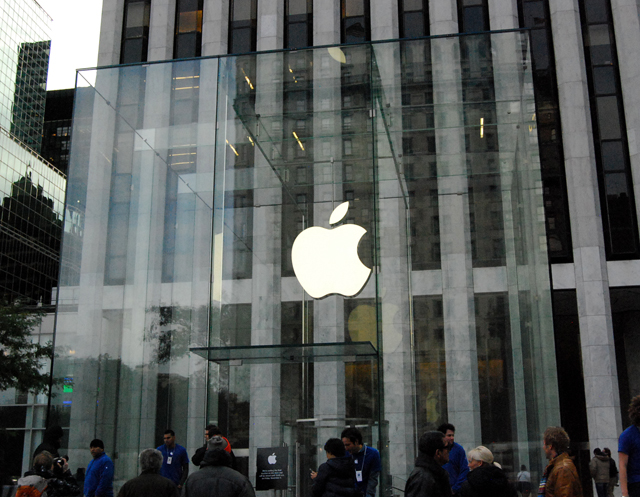
An investigation by the U.S. Senate has turned up some creative maneuvers that Apple used to avoid paying taxes on $44 billion of international income over the past four years.
[aditude-amp id="flyingcarpet" targeting='{"env":"staging","page_type":"article","post_id":741421,"post_type":"story","post_chan":"none","tags":null,"ai":false,"category":"none","all_categories":"business,","session":"A"}']Yesterday, a bipartisan senate subcommittee released a lengthy report detailing Apple’s tactics, which put the spotlight on Apple’s Irish subsidiaries, Apple Operations International and Apple Sales International. The report describes Ireland as a “tax haven” for Apple.
Even though billions of dollars flow through the Irish subsidiaries — in 2011, the subcommittee claims Apple held 64 percent of total income in Ireland — they apparently qualify as non-tax residents. Apple pays less then 2 percent of corporate sales tax for AOI and ASI in Ireland (far below the country’s typical 12 percent tax rate), and it hasn’t had to pay any taxes to the U.S.
AI Weekly
The must-read newsletter for AI and Big Data industry written by Khari Johnson, Kyle Wiggers, and Seth Colaner.
Included with VentureBeat Insider and VentureBeat VIP memberships.
Apple isn’t alone in how it manages it offshore finances, but just like the recent scathing New York Times report which detailed its other tax avoidance tactics, the subcommittee is using Apple to demonstrate the wider problem of elaborate international tax holdings. While the subcommittee doesn’t call Apple’s tactics illegal, it seems to be raising a moral argument about such extreme self-serving tax strategies.
“Apple is exploiting an absurdity, one that we have not seen other corporations use,” said Sen. Carl Levin (D-Mich.) at a Capitol Hill hearing this morning. “And the absurdity need not continue.” Notably, the hearing was Apple CEO Tim Cook’s first appearance on the Hill.
In a statement released yesterday, Apple said it “doesn’t use tax gimmicks” and went on to note:
Apple does not move its intellectual property into offshore tax havens and use it to sell products back into the US in order to avoid US tax; it does not use revolving loans from foreign subsidiaries to fund its domestic operations; it does not hold money on a Caribbean island; and it does not have a bank account in the Cayman Islands. Apple has substantial foreign cash because it sells the majority of its products outside the US. International operations accounted for 61% of Apple’s revenue last year and two-thirds of its revenue last quarter. These foreign earnings are taxed in the jurisdiction where they are earned (“foreign, post-tax income”).
Reacting to the news, Ireland was quick to say that it wasn’t responsible for Apple’s low international tax rate, Reuters reports.
Photo: Sean Ludwig/VentureBeat
[aditude-amp id="medium1" targeting='{"env":"staging","page_type":"article","post_id":741421,"post_type":"story","post_chan":"none","tags":null,"ai":false,"category":"none","all_categories":"business,","session":"A"}']
VentureBeat's mission is to be a digital town square for technical decision-makers to gain knowledge about transformative enterprise technology and transact. Learn More
